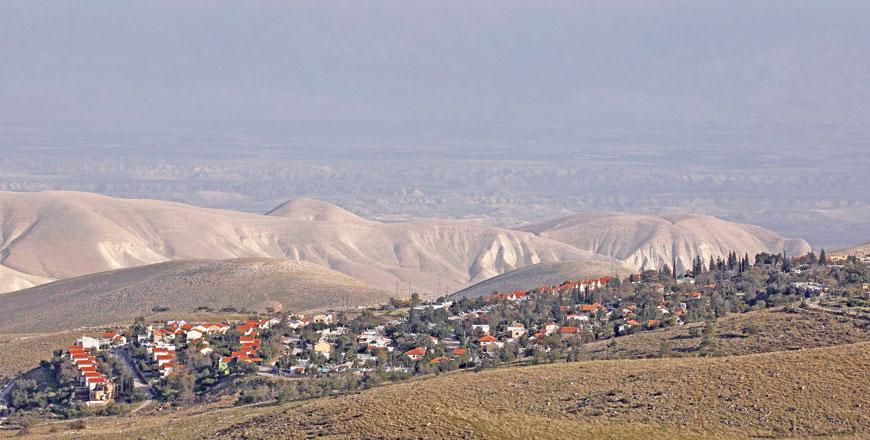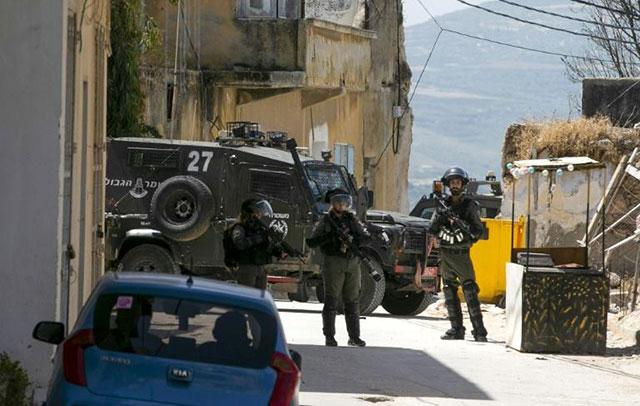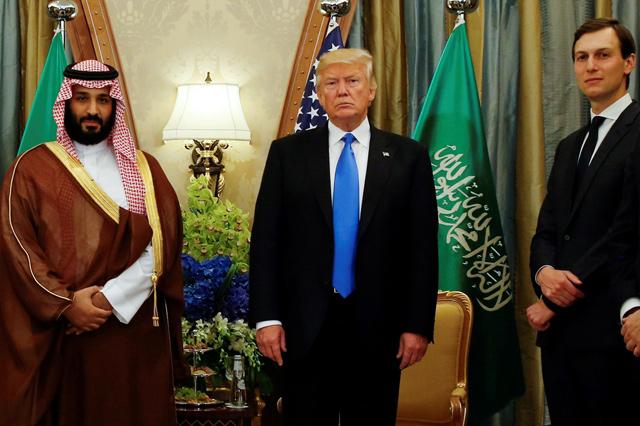You are here
Trump insists Israeli-Palestinian plan has a 'chance'
By AFP - Jan 28,2020 - Last updated at Jan 28,2020

A general view of the Israeli settlement of Maale Efrayim in the Jordan Valley in the occupied West Bank on Monday (AFP photo)
WASHINGTON — President Donald Trump said alongside visiting Prime Minister Benjamin Netanyahu on Monday that his Israeli-Palestinian peace plan has a "chance" — despite being flatly rejected by the Palestinians.
Trump, who is also meeting with Netanyahu's election rival Benny Gantz later Monday, said the plan would be unveiled at 12:00 pm (17:00 GMT) on Tuesday.
Palestinians have already panned the White House peace plan, saying it is overwhelmingly biased towards Israel. No Palestinian leaders were invited to the White House.
But Trump told reporters that "it might have a chance" and that "we're relatively close".
"We think we will have ultimately the support of the Palestinians," he said. The plan is "something they should want... It's very good for them, in fact it's overly good for them."
Netanyahu praised Trump as "the greatest friend that Israel's had in the White House" and once more described the peace plan as "the deal of the century".
The twin White House meetings with Netanyahu and Gantz thrust Trump right into Israel's tense election scheduled in just over a month.
Netanyahu’s right-wing Likud and Gantz’s centrist Blue and White Party are polling neck-and-neck.
The peace plan roll-out also gives Trump a welcome distraction from his impeachment trial in the Senate, while boosting Netanyahu’s standing as he fights corruption charges back home.
No deal
The Palestinians say they were never included in crafting the plan, which was overseen by Trump son-in-law Jared Kushner.
Palestinian Prime Minister Mohammed Shtayyeh on Monday urged international powers to boycott the plan, which he said was designed “to protect Trump from impeachment and protect Netanyahu from prison”.
“It is not a Middle East peace plan,” Shtayyeh told a Cabinet meeting. “This plan gives Israel sovereignty over Palestinian territory.”
“We call on the international community to not be partners in this [plan] because it contravenes international law,” Shtayyeh told journalists ahead of the Cabinet meeting.
The plan, whose details remain unclear, has been gestating in secret for so long that sceptics asked whether it even really existed.
Aaron David Miller, a Mideast expert with the Carnegie Endowment for International Peace, said Kushner’s team wants to “finally, basically demonstrate that they have a plan” — and to do so ahead of the US presidential election.
In the short term, said Dennis Ross, a US diplomat who worked on the issue under several administrations, “anything that can divert attention away from what’s going on” is the goal.
‘Make history’
Trump has already thrown Netanyahu a string of political presents.
These include breaking with international diplomatic consensus to recognise the disputed city of Jerusalem as the Israeli capital, recognising Israeli sovereignty over the Golan Heights, which were seized from neighbouring Syria, and ending opposition to Israeli settlements on occupied Palestinian land.
Last Thursday, Trump described the still-unpublished peace plan as “great” and said it “really would work”.
Netanyahu said before leaving for Washington that he was “full of hope that we can make history”.
Gantz is also enthusiastic, saying the plan will “go down in history”, allowing “different players in the Middle East to finally move ahead towards an historic regional agreement”.
But on Sunday, Palestinian leaders warned that instead of bringing peace, the plan could trigger their withdrawal from key provisions of the decades-old Oslo Accords, which sought to map out peaceful Israeli-Palestinian relations.
“The US administration will not find a single Palestinian who supports this project,” the Palestinian foreign ministry said in a statement on Sunday.
“Trump’s plan is the plot of the century to liquidate the Palestinian cause.”
Netanyahu is campaigning on a continuation of his hardline policies that he says are needed to provide security for Israelis, but that critics say condemn Palestinians in the occupied territories to an increasingly bleak future.
Abbas rejects outreach
Trump has repeatedly cast himself as the most “pro-Israeli” American president in history and his plan is expected to be the most favourable for Israel ever proposed by an American leader.
Three Palestinian officials, speaking on condition of anonymity, told AFP on Monday that Trump had made several attempts to discuss the plan with President Mahmoud Abbas in recent weeks, but the Palestinian president had rejected those outreaches.
“There will be no discussion with the Americans until they recognise the two-state solution,” one senior official said.
A spokesperson for the American embassy in Jerusalem was not immediately available for comment.
Some have speculated that the US proposal could pull back from supporting the creation of a Palestinian state with its capital in East Jerusalem, the common definition of the two-state solution.
The US proposal may also seek to give Israel the green light to annex the Jordan Valley, a key territory that constitutes around 30 per cent of the West Bank.
Israeli Interior Minister Aryeh Deri toured the Jordan Valley on Monday, saying they were taking steps towards the move — a central election promise of right winger Netanyahu.
“As interior minister I’d like to tell you, we’ve started to prepare for an annexation — we are getting the paper-work ready,” Deri said in a statement.
In Gaza on Monday a few hundred Palestinians protested against the Trump plan, which Palestinians ironically call the “Deal of the Century”.
Demonstrators tied American and Israeli flags to an effigy of Trump, which they then set on fire.
Further protests were expected over the coming days.
Related Articles
OCCUPIED JERUSALEM — Arab foreign ministers are to hold talks on Thursday on Israel's US-backed plans to annex key parts of the occupied Wes
OCCUPIED JERUSALEM — US Secretary of State Mike Pompeo visited Israel on Wednesday for talks with leaders on plans to annex swathes of the o
RIYADH — White House Adviser Jared Kushner held talks with Saudi Arabia's king and crown prince during a regional tour to rally support for

















